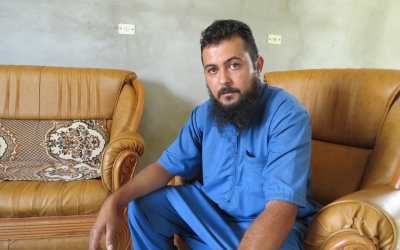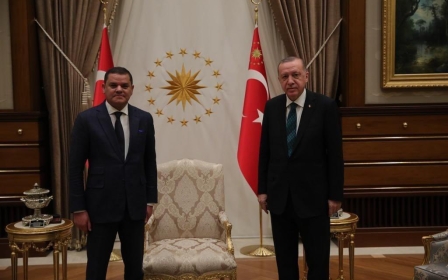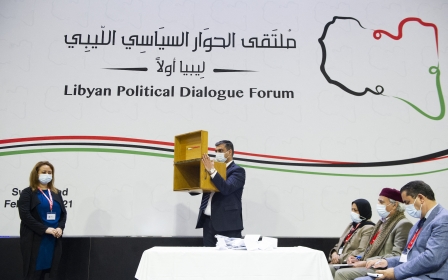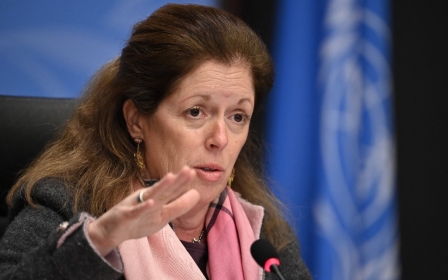Libya: Parliament approves interim government

Libya's parliament has approved new Prime Minister Abdelhamid Dbeibah's transitional government, which was born out of a UN-sponsored process that aims to lead the country to elections in December.
After two days of intense debate, the elected parliament approved Dbeibah's team by 121 votes out of the 132 deputies present, according to images broadcast live on television.
Dbeibah's government now has the daunting task of bringing together Libya's warring parties and fractured centres of power.
Oil-rich Libya descended into chaos after longtime autocrat Muammar Gaddafi was toppled and killed in a 2011 Nato-backed uprising, resulting in multiple forces vying for power. Since 2014, Libya has been divided between two competing administrations, one based in the east, the other in the west.
On Tuesday, Dbeibah demanded the departure of an estimated 20,000 foreign fighters as he sought support from lawmakers to help end the grinding civil war.
"The mercenaries are a stab in our back - they must leave," he told parliament, saying he would contact the UN and the countries where the mercenaries come from to demand they withdraw.
"Our sovereignty is violated by their presence," Dbeibah added, speaking in the central coastal city of Sirte.
Libya is split between the UN-recognised Government of National Accord (GNA), based in the capital Tripoli and backed by Turkey, and an administration in the east supported by military commander Khalifa Haftar, with the backing of the United Arab Emirates, Egypt and Russia.
The approval of the new government comes after an October ceasefire between the two rival administrations, which followed a brutal and unsuccessful 14-month assault by Haftar's forces on Tripoli.
'For all Libyans'
According to the UN, some 20,000 mercenaries and foreign fighters were still in Libya in early December, and a 23 January deadline for their withdrawal passed without any sign of them pulling out.
Some have literally dug in. In January, satellite images broadcast by CNN showed a trench running tens of kilometres dug by mercenaries near the frontline city of Sirte. The mercenaries are believed to belong to the Wagner Group, a shadowy Kremlin-linked private army.
The advance team of a UN observer mission arrived in Libya last week, tasked with monitoring the ceasefire and verifying the departure of the thousands of foreign fighters.
Dbeibah, who submitted his proposed government to parliament for approval last week, pleaded for lawmakers to vote in favour of it.
"We have no choice but to come to an agreement, for the future of our children," Dbeibah said, to the applause of parliament.
Dbeibah, a billionaire businessman from Misrata in Libya's west, was selected in February at UN-sponsored talks, attended by a cross-section of Libyans, to steer the country towards 24 December elections.
The process has been marred by allegations of vote-buying, but the interim premier defended the composition of his proposed government.
"My first objective was to choose people with whom I would be able to work, no matter where they come from," Dbeibah said.
The members of his government "must be able to work for all Libyans in all of Libya, not just for their region or their city", he insisted.
Over 130 of a total 188 lawmakers began meeting on Monday in Sirte, Gaddafi's hometown, to debate the proposed cabinet.
Middle East Eye propose une couverture et une analyse indépendantes et incomparables du Moyen-Orient, de l’Afrique du Nord et d’autres régions du monde. Pour en savoir plus sur la reprise de ce contenu et les frais qui s’appliquent, veuillez remplir ce formulaire [en anglais]. Pour en savoir plus sur MEE, cliquez ici [en anglais].






